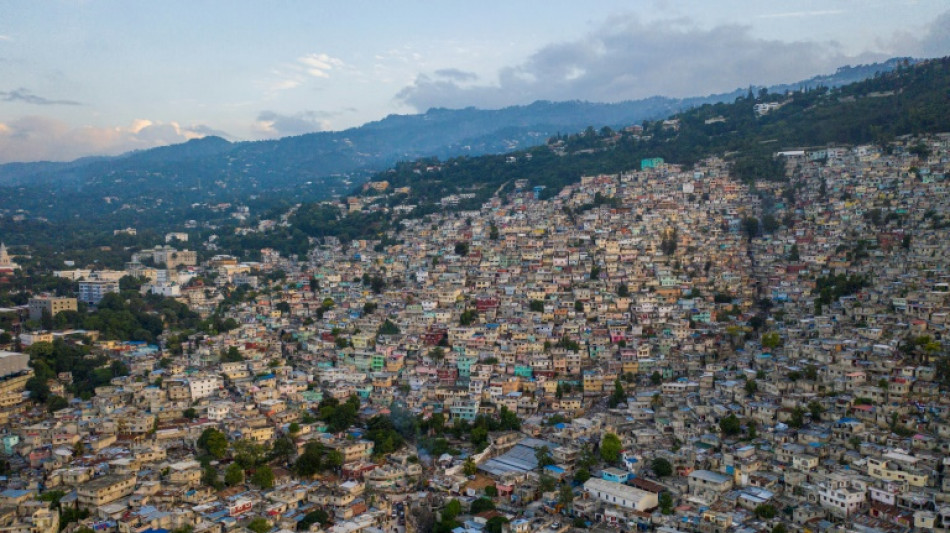
-
 Barca fight back against Inter in sensational semi-final draw
Barca fight back against Inter in sensational semi-final draw
-
Meta quarterly profit climbs despite big cloud spending
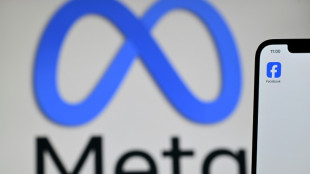
-
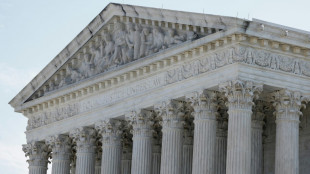 US Supreme Court weighs public funding of religious charter school
US Supreme Court weighs public funding of religious charter school
-
Climate change made fire conditions twice as likely in South Korea blazes: study
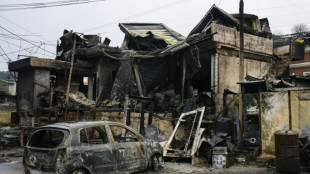
-
 Amorim says not even Europa League glory can save Man Utd's season
Amorim says not even Europa League glory can save Man Utd's season
-
Syria reports Israeli strikes as clashes with Druze spread

-
 Ukraine, US say minerals deal ready as suspense lingers
Ukraine, US say minerals deal ready as suspense lingers
-
Everything is fine: Trump's cabinet shrugs off shrinking economy
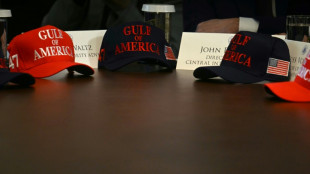
-
 Chelsea boss Maresca adamant money no guarantee of success
Chelsea boss Maresca adamant money no guarantee of success
-
Wood warns England cricketers against 'dumb' public comments

-
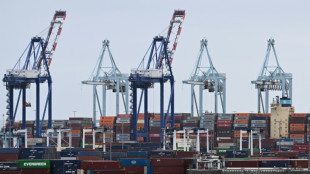 US economy shrinks, Trump blames Biden
US economy shrinks, Trump blames Biden
-
Caterpillar so far not hiking prices to offset tariff hit

-
 Japan's Kawasaki down Ronaldo's Al Nassr to reach Asian Champions League final
Japan's Kawasaki down Ronaldo's Al Nassr to reach Asian Champions League final
-
Trump praises Musk as chief disruptor eyes exit

-
 Chahal hat-trick helps Punjab eliminate Chennai from IPL playoff race
Chahal hat-trick helps Punjab eliminate Chennai from IPL playoff race
-
Pope Francis saw clergy's lack of humility as a 'cancer': author
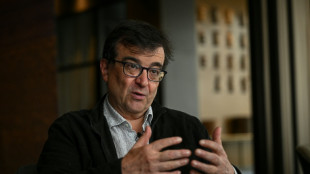
-
 Weinstein accuser recounts alleged rape at assault retrial in NY
Weinstein accuser recounts alleged rape at assault retrial in NY
-
Piastri heads into Miami GP as the man to beat

-
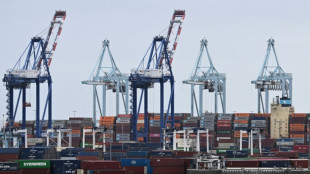 US economy unexpectedly shrinks in first quarter, Trump blames Biden
US economy unexpectedly shrinks in first quarter, Trump blames Biden
-
Maxwell likely to miss rest of IPL with 'fractured finger'

-
 Syria reports Israeli strikes after warning over Druze as sectarian clashes spread
Syria reports Israeli strikes after warning over Druze as sectarian clashes spread
-
Despite war's end, Afghanistan remains deep in crisis: UN relief chief

-
 NFL fines Falcons and assistant coach over Sanders prank call
NFL fines Falcons and assistant coach over Sanders prank call
-
British teen Brennan takes stage 1 of Tour de Romandie

-
 Swedish reporter gets suspended term over Erdogan insult
Swedish reporter gets suspended term over Erdogan insult
-
Renewable energy in the dock in Spain after blackout

-
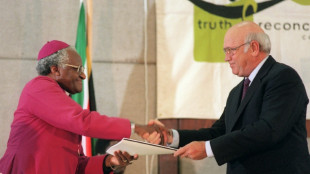 South Africa sets up inquiry into slow apartheid justice
South Africa sets up inquiry into slow apartheid justice
-
Stocks retreat as US GDP slumps rattles confidence
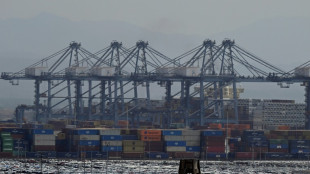
-
 Migrants' dreams buried under rubble after deadly strike on Yemen centre
Migrants' dreams buried under rubble after deadly strike on Yemen centre
-
Trump blames Biden's record after US economy shrinks
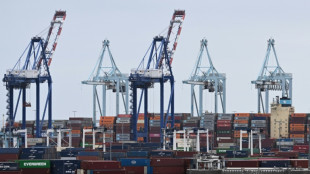
-
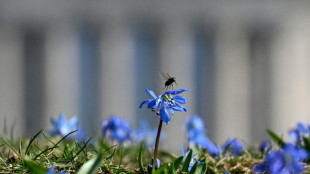 UK scientists fear insect loss as car bug splats fall
UK scientists fear insect loss as car bug splats fall
-
Mexico avoids recession despite tariff uncertainty
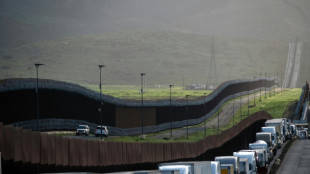
-
 Rwandan awarded for saving grey crowned cranes
Rwandan awarded for saving grey crowned cranes
-
Spurs have 'unbelievable opportunity' for European glory: Postecoglou
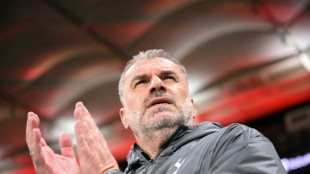
-
 Microsoft president urges fast 'resolution' of transatlantic trade tensions
Microsoft president urges fast 'resolution' of transatlantic trade tensions
-
Poppies flourish at Tower of London for WWII anniversary

-
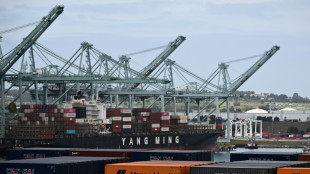 US economy unexpectedly shrinks on import surge before Trump tariffs
US economy unexpectedly shrinks on import surge before Trump tariffs
-
Stocks drop after US economy contracts amid tariffs turmoil
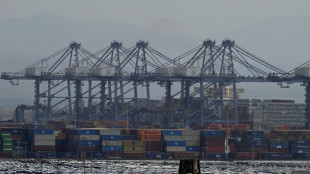
-
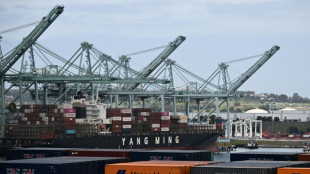 US economy unexpectedly shrinks on import surge ahead of Trump tariffs
US economy unexpectedly shrinks on import surge ahead of Trump tariffs
-
Dravid says Suryavanshi, 14, needs support from fame

-
 Arsenal can win 'anywhere' says Merino after Champions League defeat by PSG
Arsenal can win 'anywhere' says Merino after Champions League defeat by PSG
-
Bangladesh crush Zimbabwe by an innings in second Test

-
 Swiatek recovers against Keys to reach Madrid Open semis
Swiatek recovers against Keys to reach Madrid Open semis
-
Spurs captain Son out of first leg of Europa League semi-final
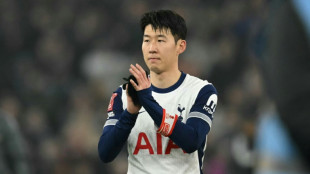
-
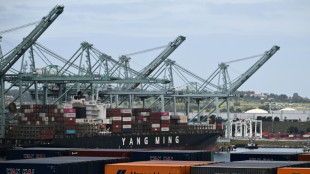 US economy unexpectedly shrinks in first three months of Trump presidency
US economy unexpectedly shrinks in first three months of Trump presidency
-
India to ask caste status in next census for first time in decades
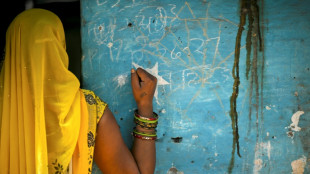
-
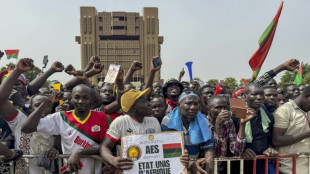 Burkina junta rallies supporters after claimed coup 'plot'
Burkina junta rallies supporters after claimed coup 'plot'
-
Forest owner Marinakis steps back as European qualification looms

-
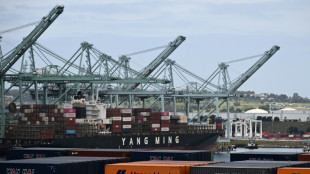 US economy unexpectedly contracts in first three months of Trump presidency
US economy unexpectedly contracts in first three months of Trump presidency
-
Bilbao will give 'soul' to beat Man United: Nico Williams


Haiti's colonial debt burden sparks debate -- but official silence
A newspaper expose has reignited debate over the ongoing legacy of debts that Haiti was forced to pay to former colonial ruler France in the 19th century -- but the country's elites are surprisingly keen to bury the issue.
After months of poring over archives, The New York Times estimated that debt payments starting in 1825 cost poverty-stricken Haiti between $21 billion and $115 billion -- or as much as eight times its GDP in 2020.
In Haiti, the figures have added fresh fuel to a fierce debate that stands in stark contrast to the silence from authorities in the capital Port-au-Prince and the political opposition.
"Haitian politicians have the unfortunate tendency to work only in the present," Haitian historian Pierre Buteau told AFP.
"Men and women in politics are only interested in the fight to gain power."
Haitian leaders' reluctance to speak out about the country having to pay France back after it gained independence also partly stems from a pattern of Western intervention in Haiti in the recent past.
In 2003, then president Jean-Bertrand Aristide made the debt issue a rallying cry, and estimated that France took in more than $21 billion from Haiti.
But, facing a military insurrection and a popular revolt alleging human rights violations, Aristide was overthrown in 2004, under strong pressure from the United States, France and Canada.
Questioned nearly 20 years later by The New York Times, the French ambassador at the time, Thierry Burkard, admitted that Aristide's removal was "probably a bit about" his call for reparations from France.
When it declared independence in 1804, Haiti became the world's first black-ruled republic and an outcast in an era dominated by countries that engaged in slavery.
It had to pay France for the freedom of its citizens who had been slaves -- and was pitched into impossibly heavy repayments, rapid defaults and toxic loans from France.
"The way in which over the course of 150 years Haiti had to pay France for having wanted to be free... compromised Haiti's very insertion on the international scene," French economist Thomas Piketty said in 2019 as he promoted his book "Capital and Ideology" in which he tackled how Haiti incurred colossal debt.
- 'Shine a light on this past' -
The payments to France not only denied Haiti critically needed resources -- they also helped build up France itself.
The Times showed that in the late 19th century a bank called CIC repatriated money from the new Haitian national bank that came from loans that were supposed to help Haiti pay off its debt.
The money in turn helped Parisian banks to finance the construction of the Eiffel Tower.
The current parent company of CIC, Credit Mutuel, released a statement Monday in response to the Times investigation.
"As it is important to clarify all the components of the history of colonization, including in the 1870s, the bank will finance independent university research to shine a light on this past," Credit Mutuel said.
Reaction to the New York Times investigation was mixed, with some experts and academics accusing it of downplaying Aristide's crimes to emphasize the narrative that he was ousted for seeking for reparations from France.
US former diplomat Patrick Gaspard, whose parents were from Haiti, said it was "an inexplicable whitewashing on the internal violence and corruption in the Aristide era that can't just be explained away by pointing to France and the US."
In its articles, the Times also showed that Haiti's gold reserves were raided by American soldiers at the start of the 20th century.
"In the drowsy hours of a December afternoon, eight American Marines strolled into the headquarters of Haiti’s national bank and walked out with $500,000 in gold, packed in wooden boxes," the Times wrote.
This was prior to a full scale US invasion of Haiti by the US army, which occupied the country from 1915 to 1934.
The US retained direct control over Haiti's finances for more than a decade after US troops went back home.
Haiti today is mired by grinding poverty, murderous gangs who control large parts of the capital, and political chaos that included the assassination of the president last year.
A.Rodriguezv--AMWN